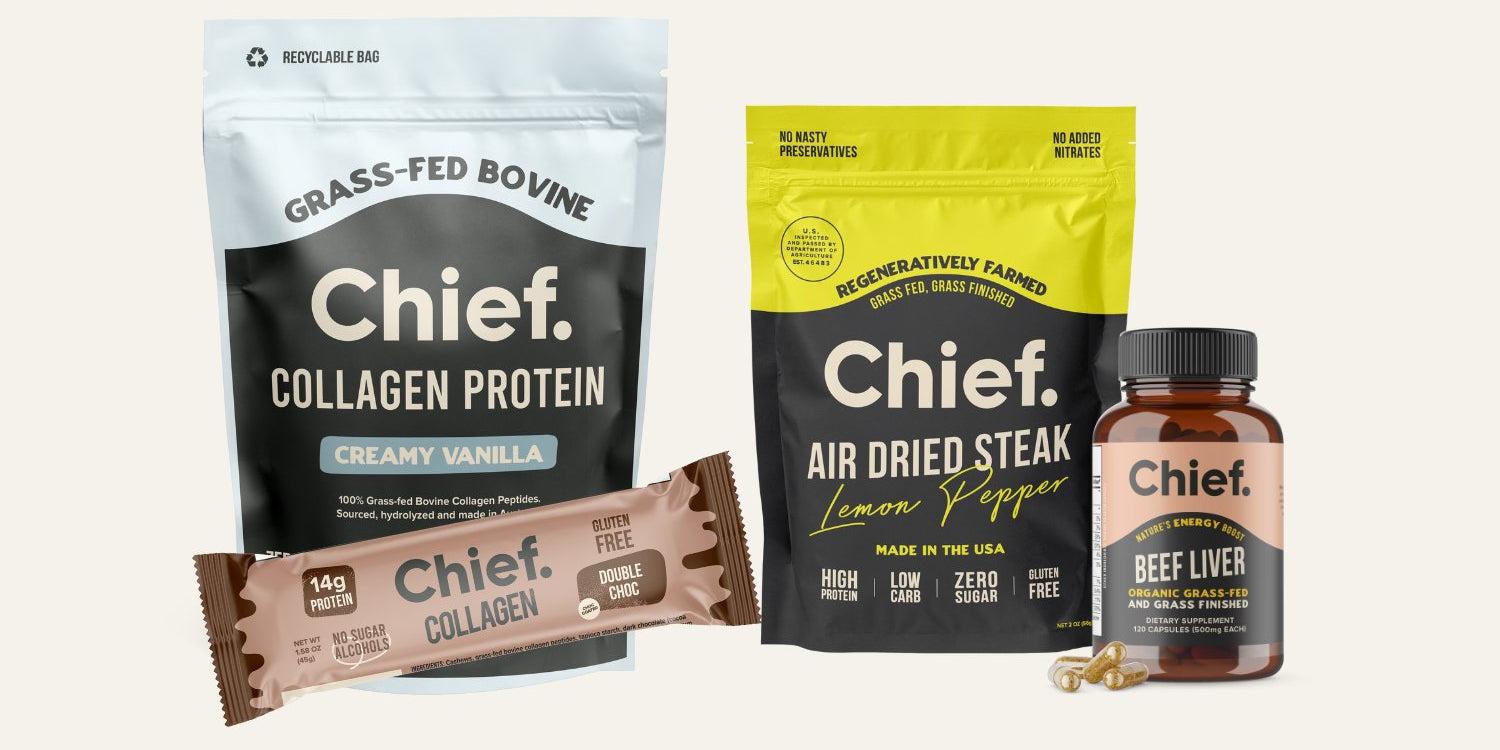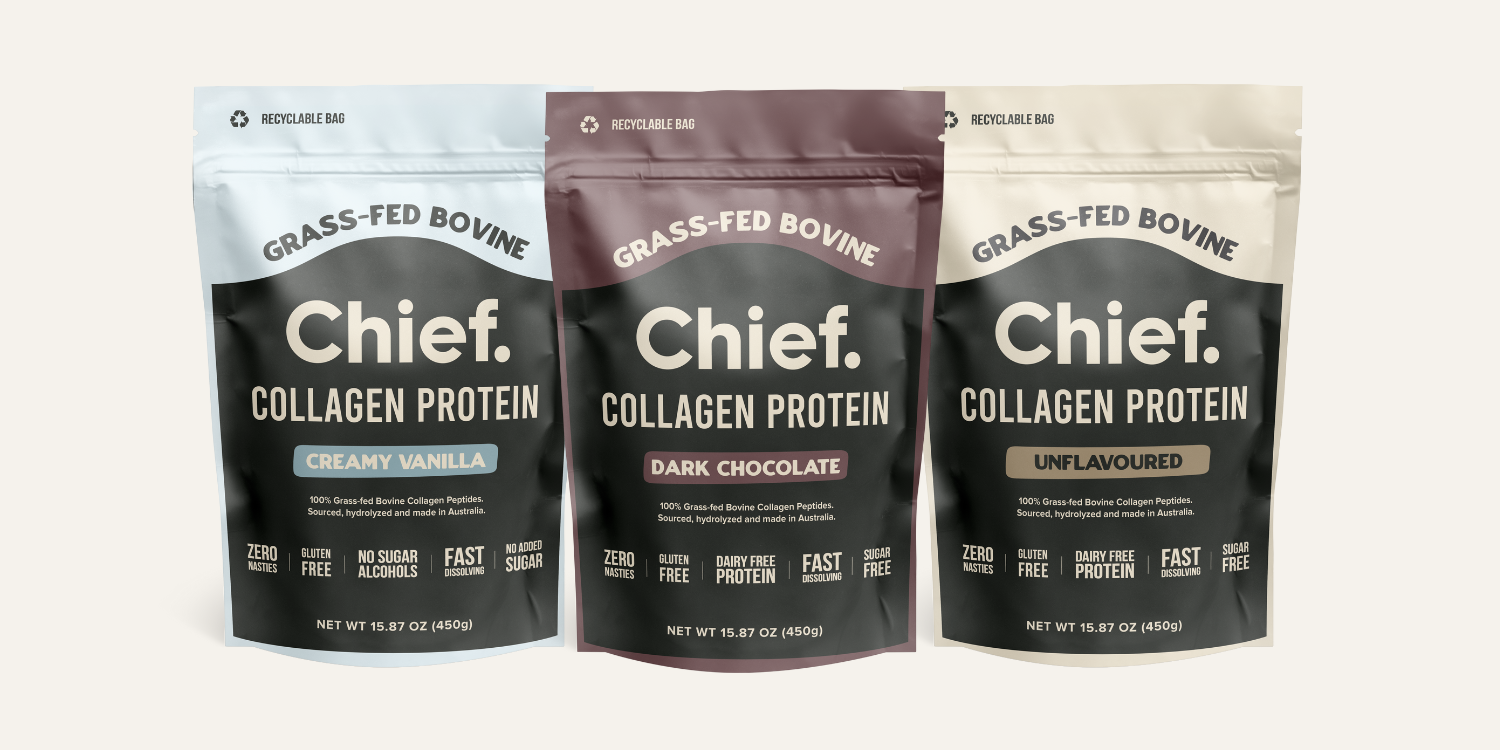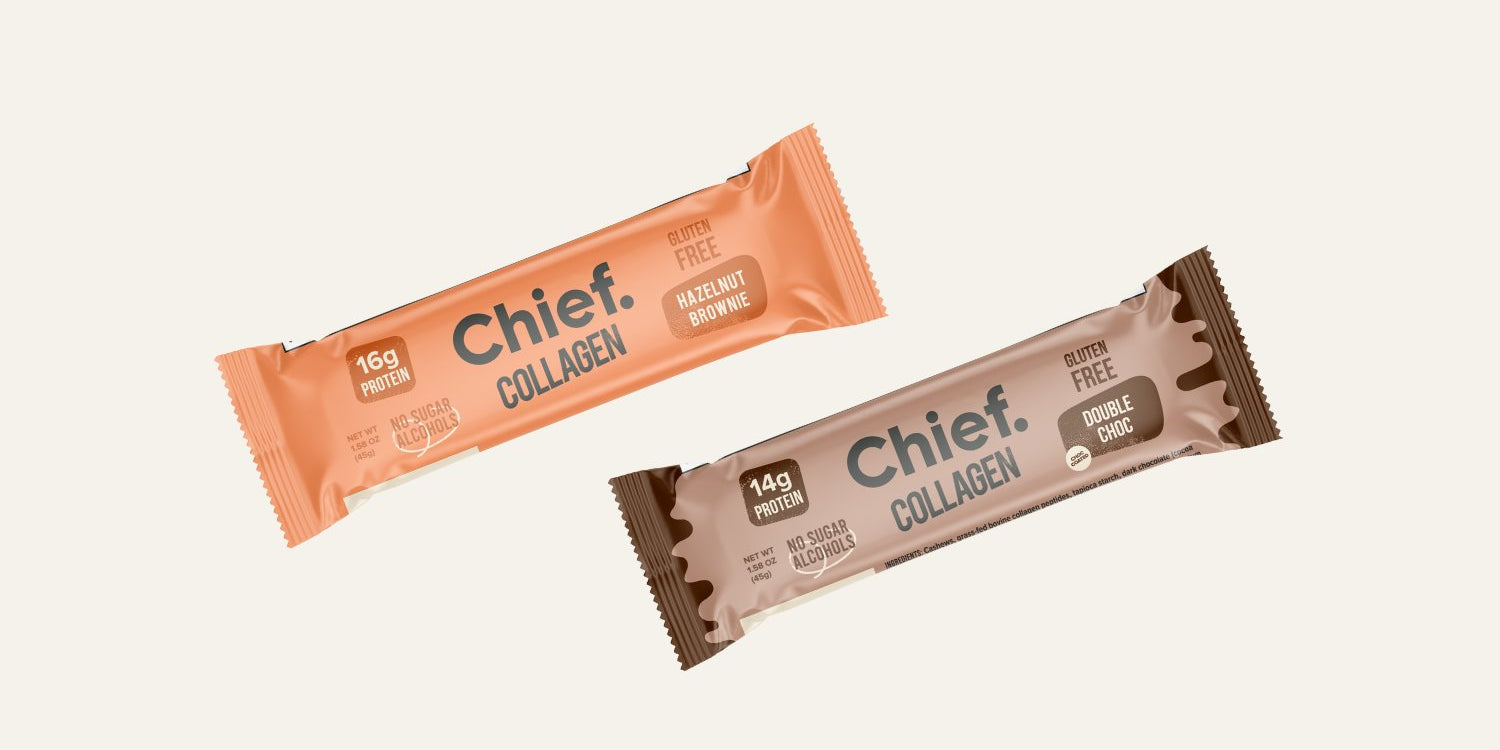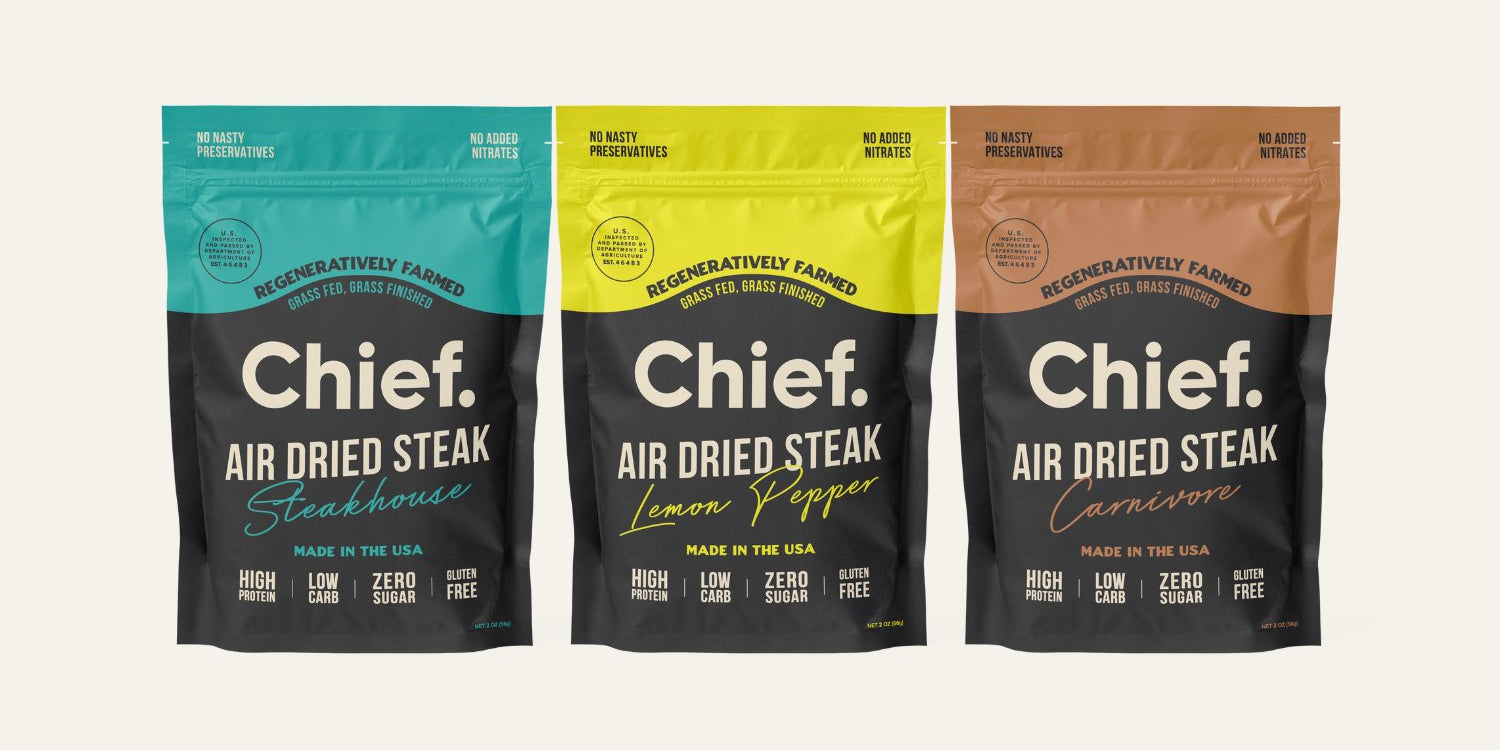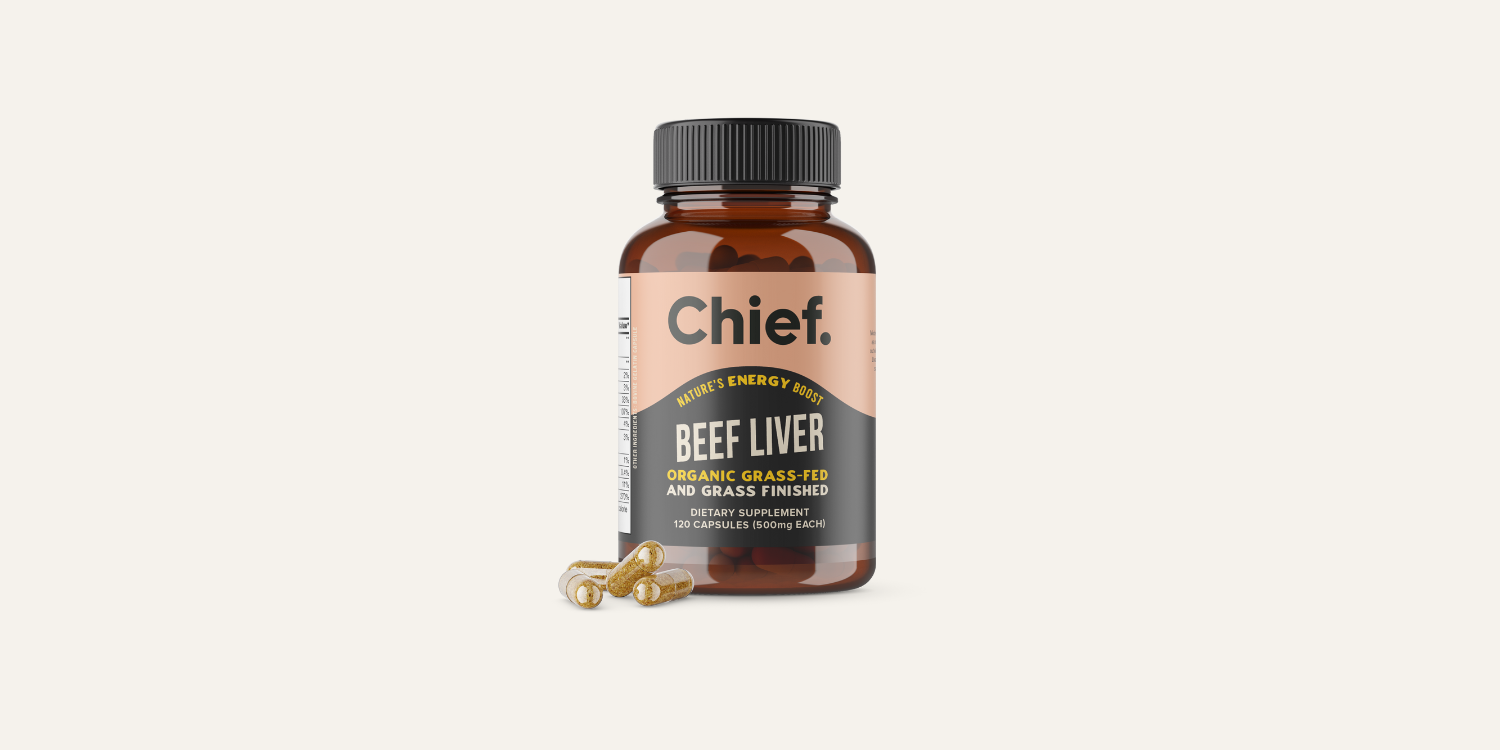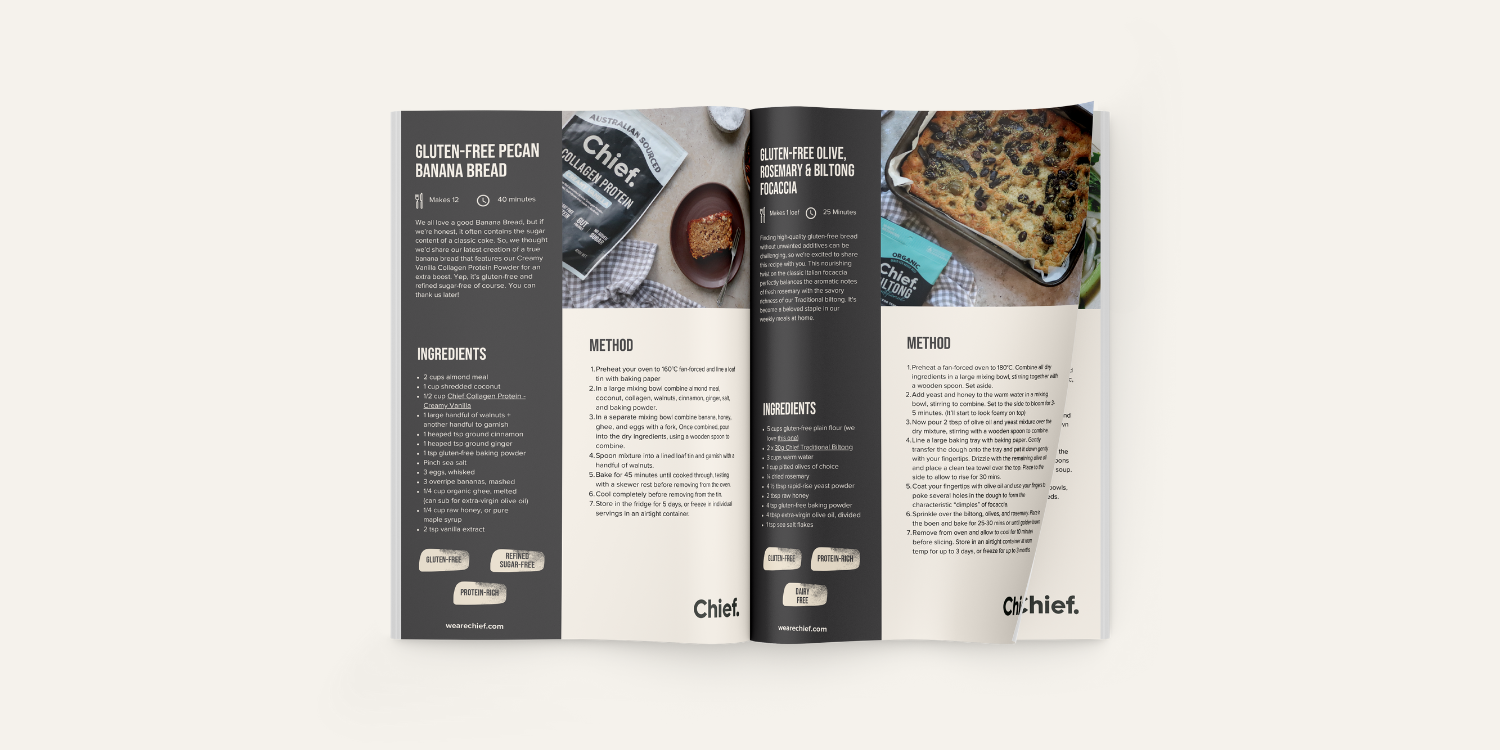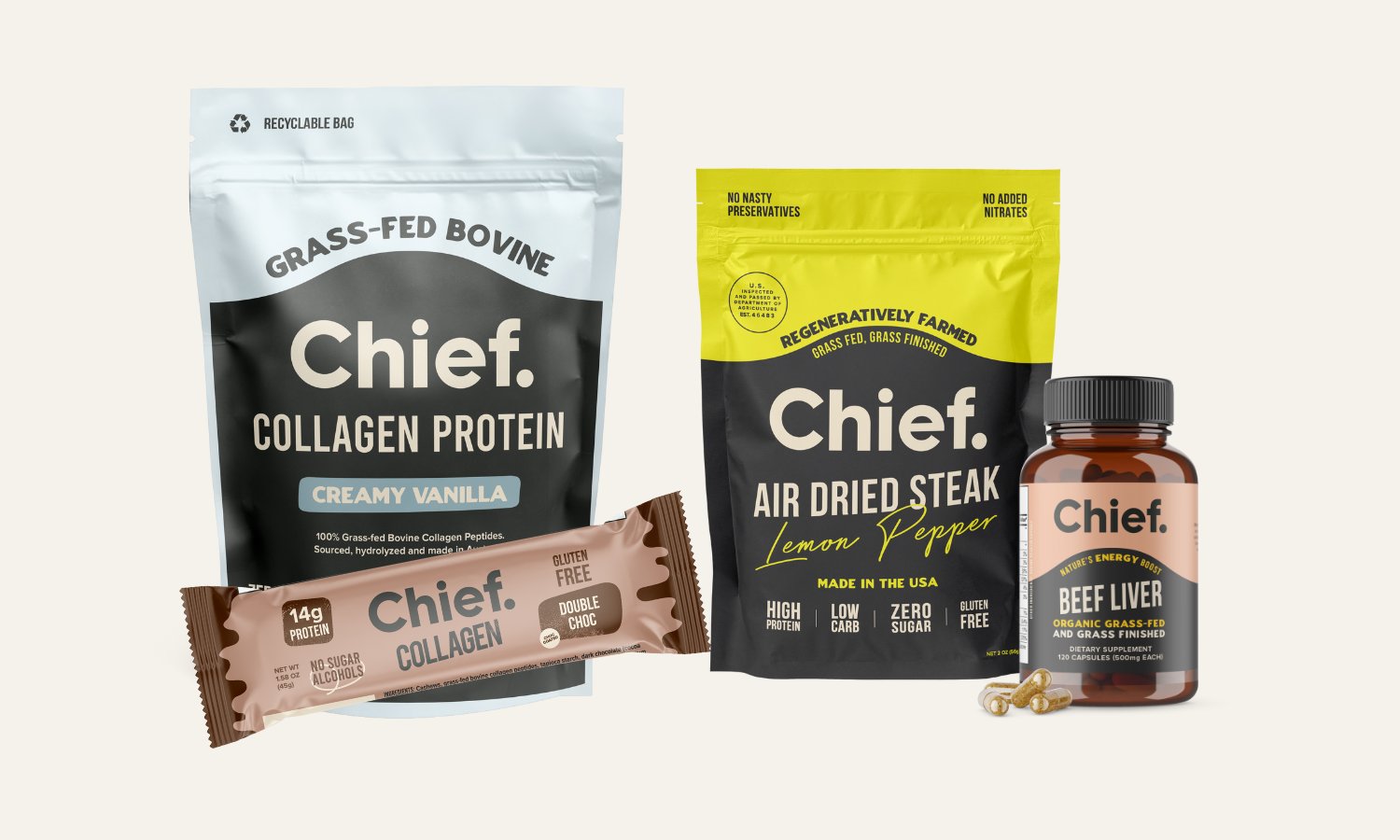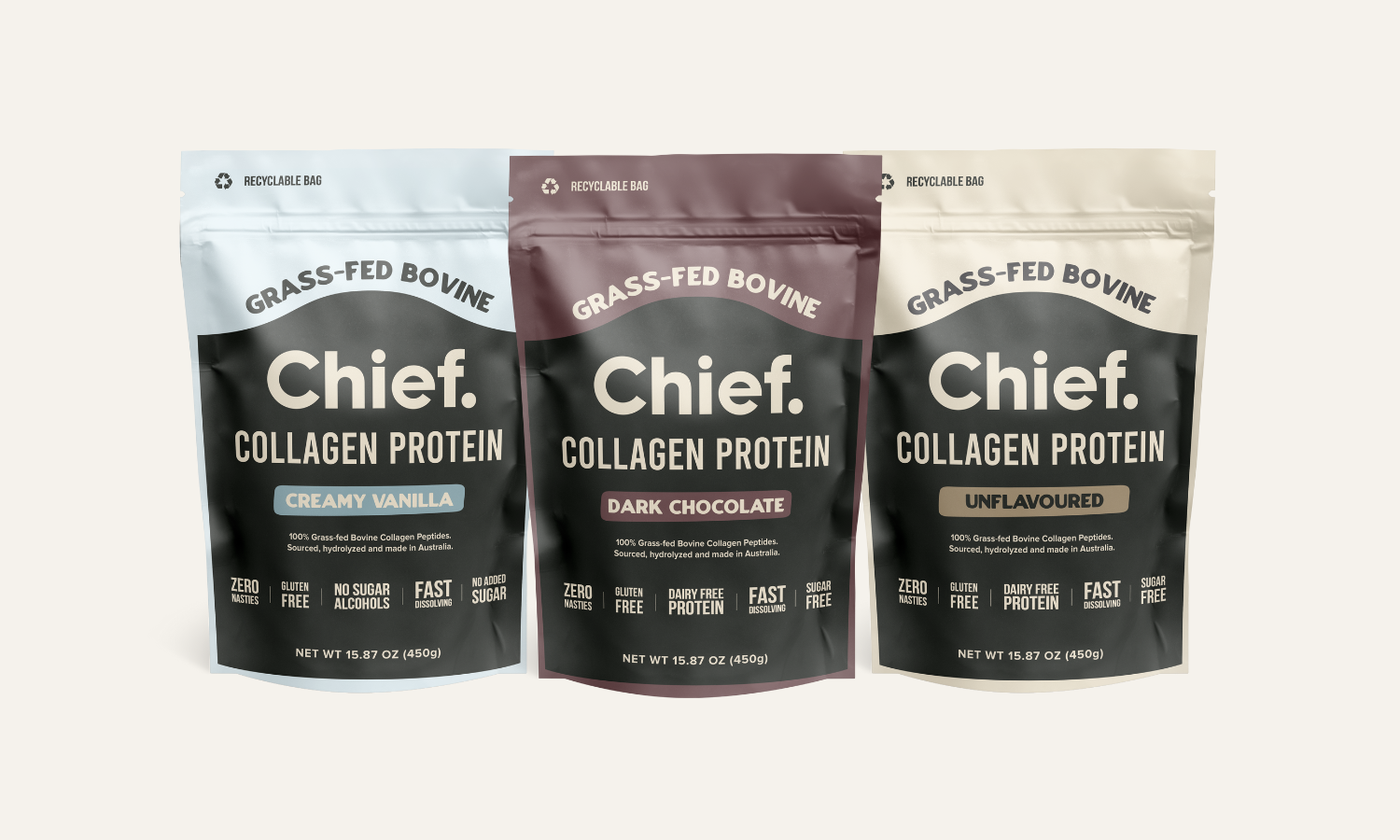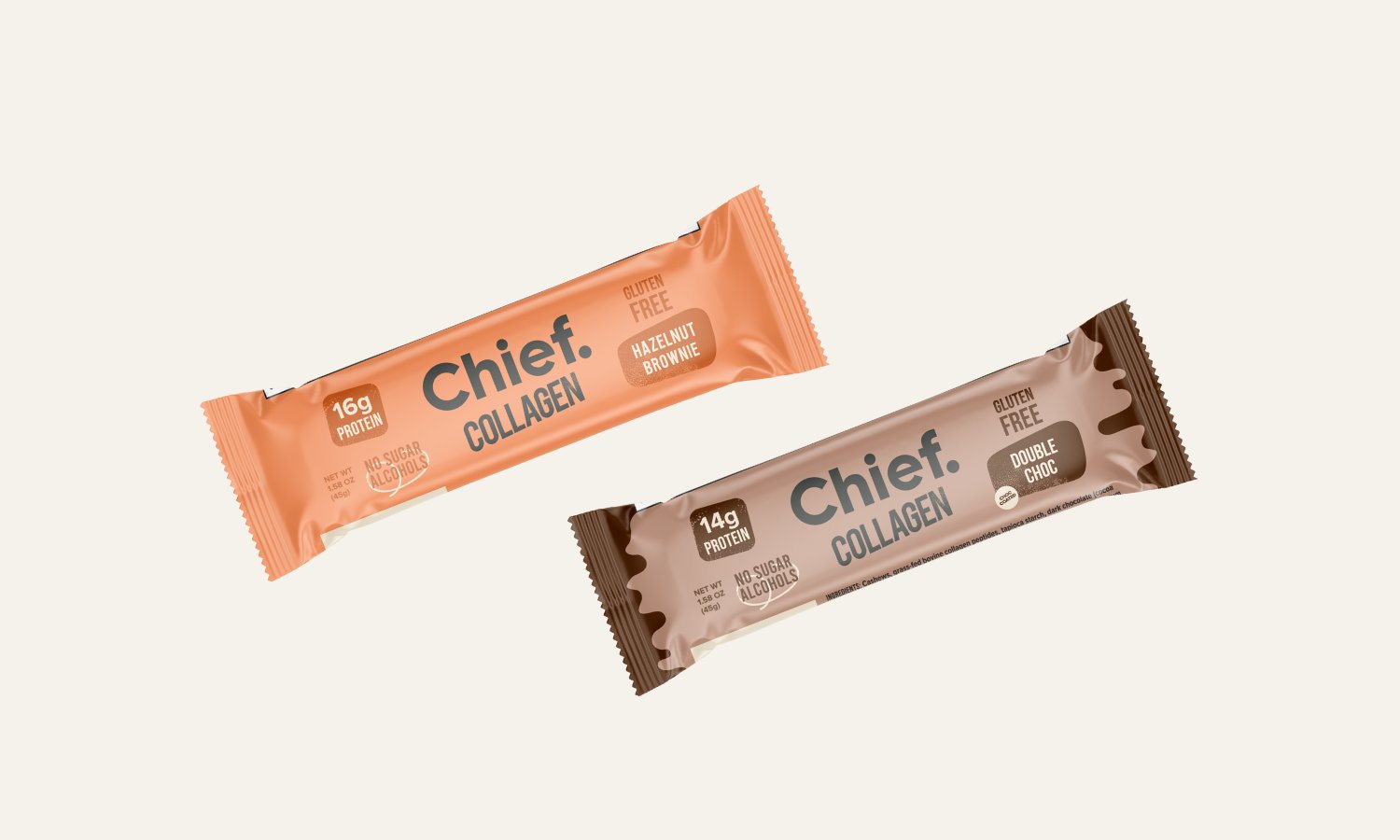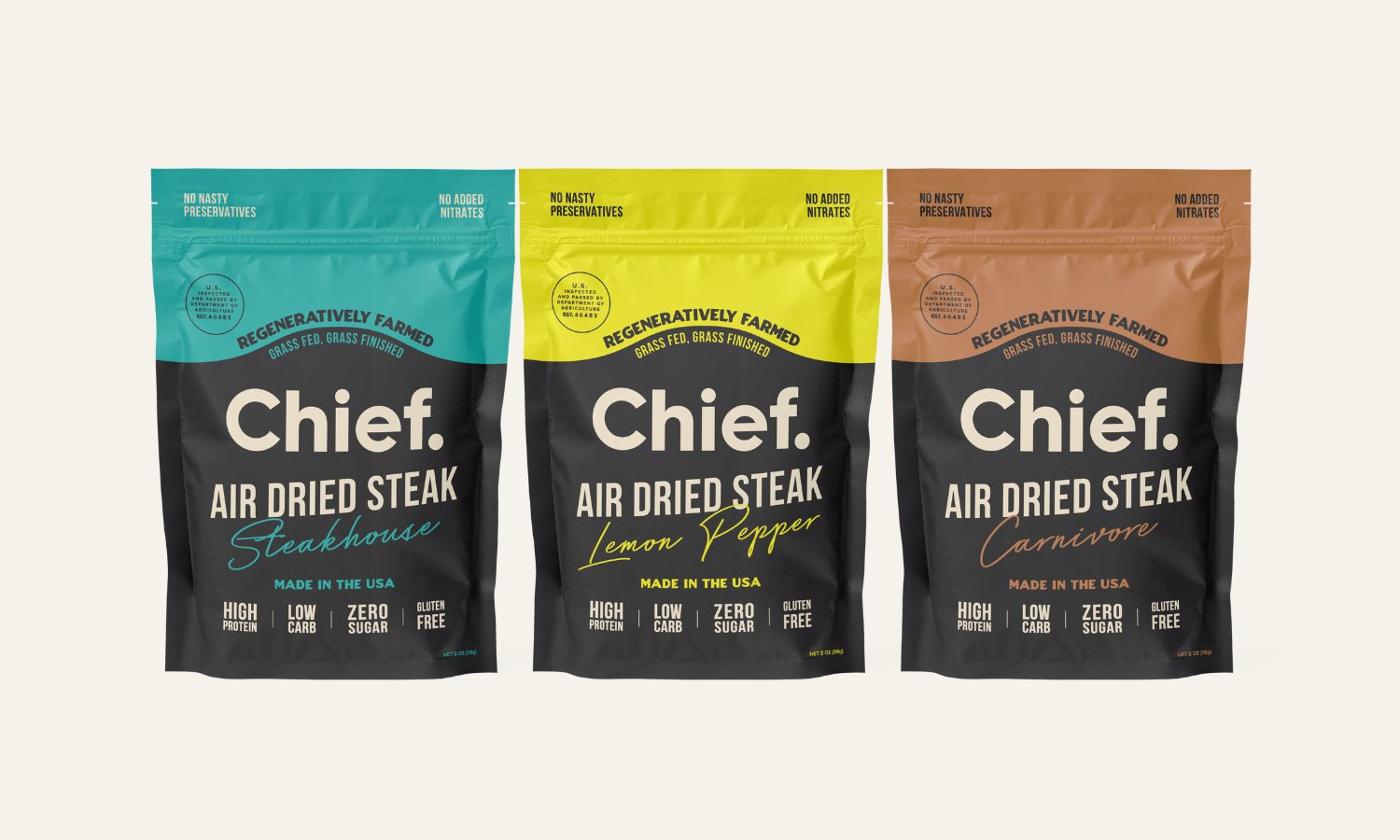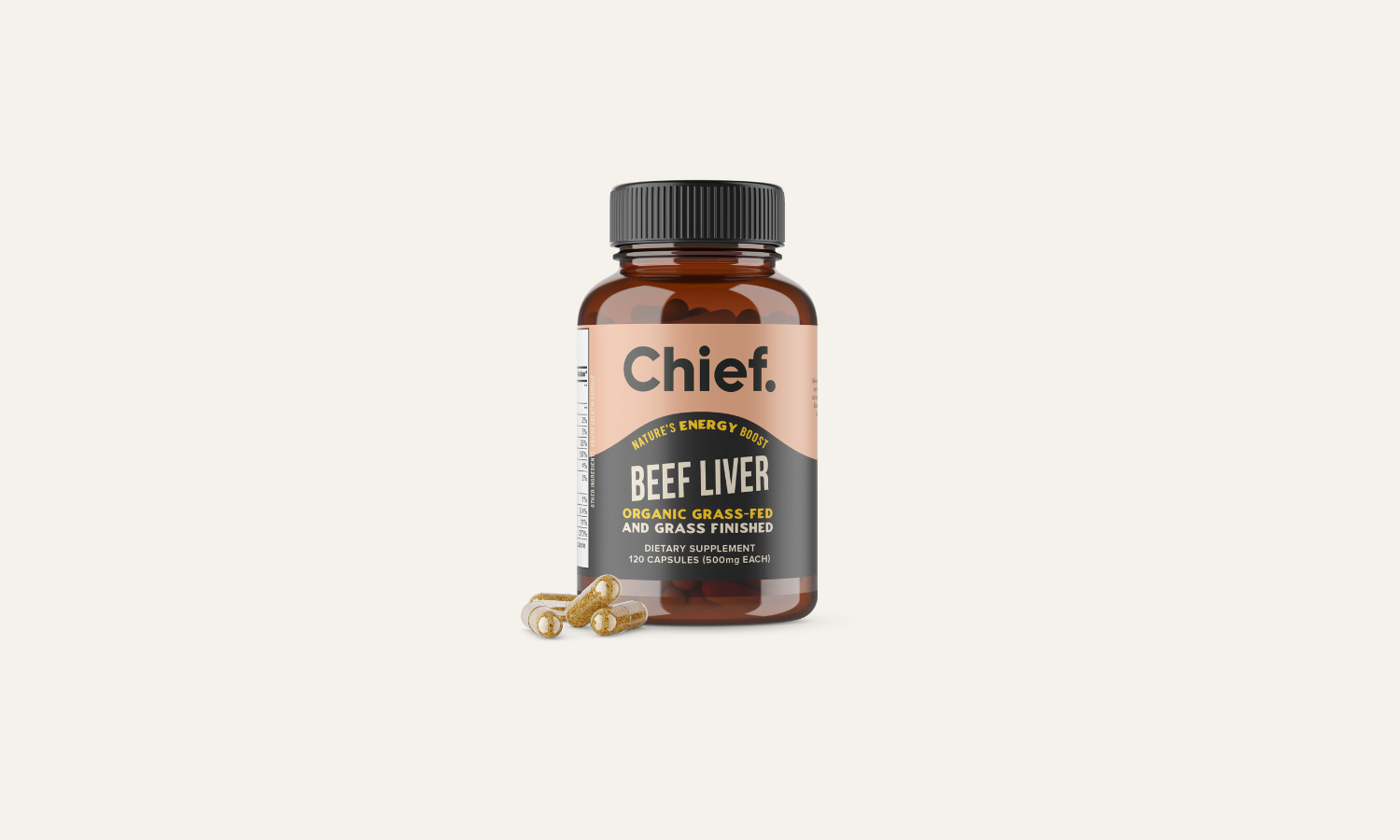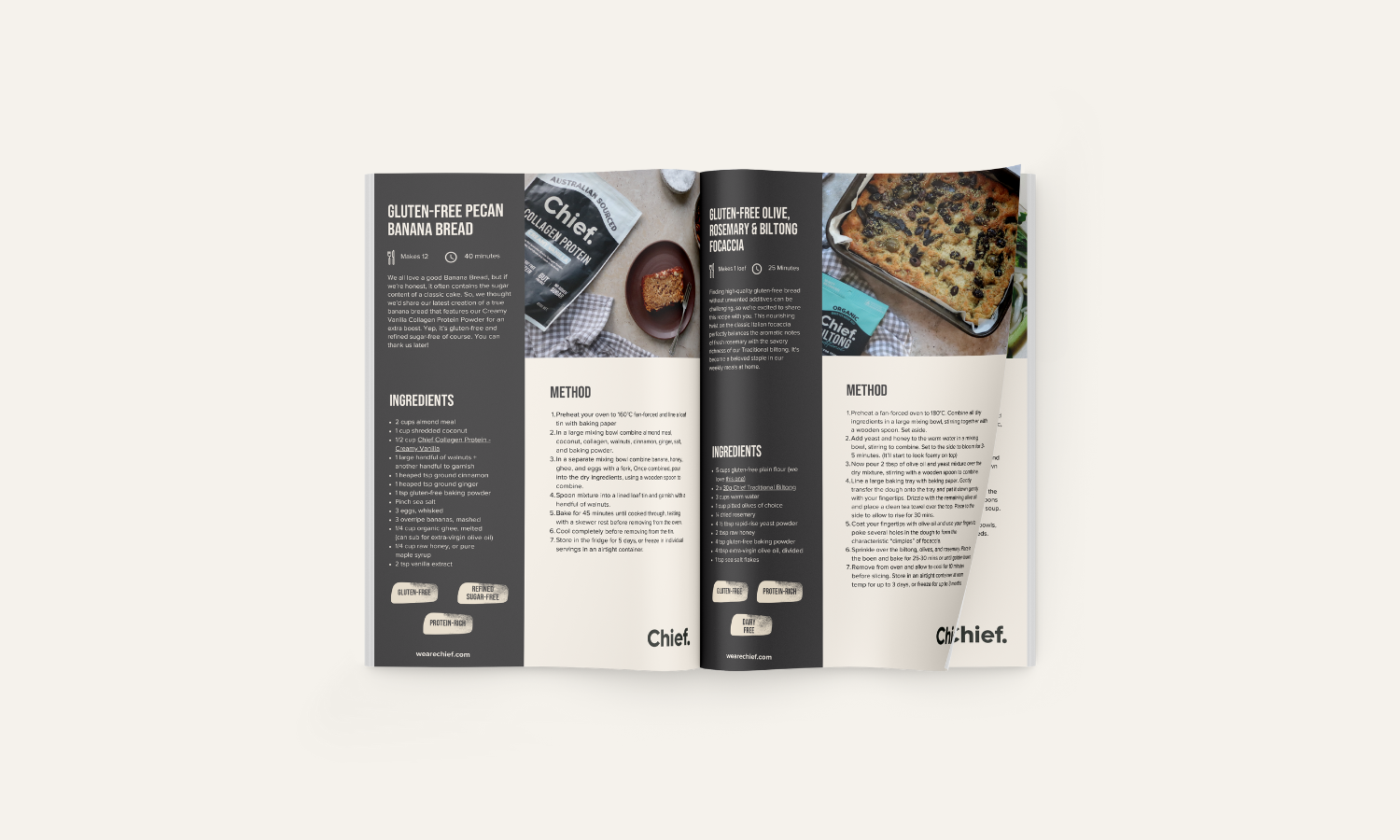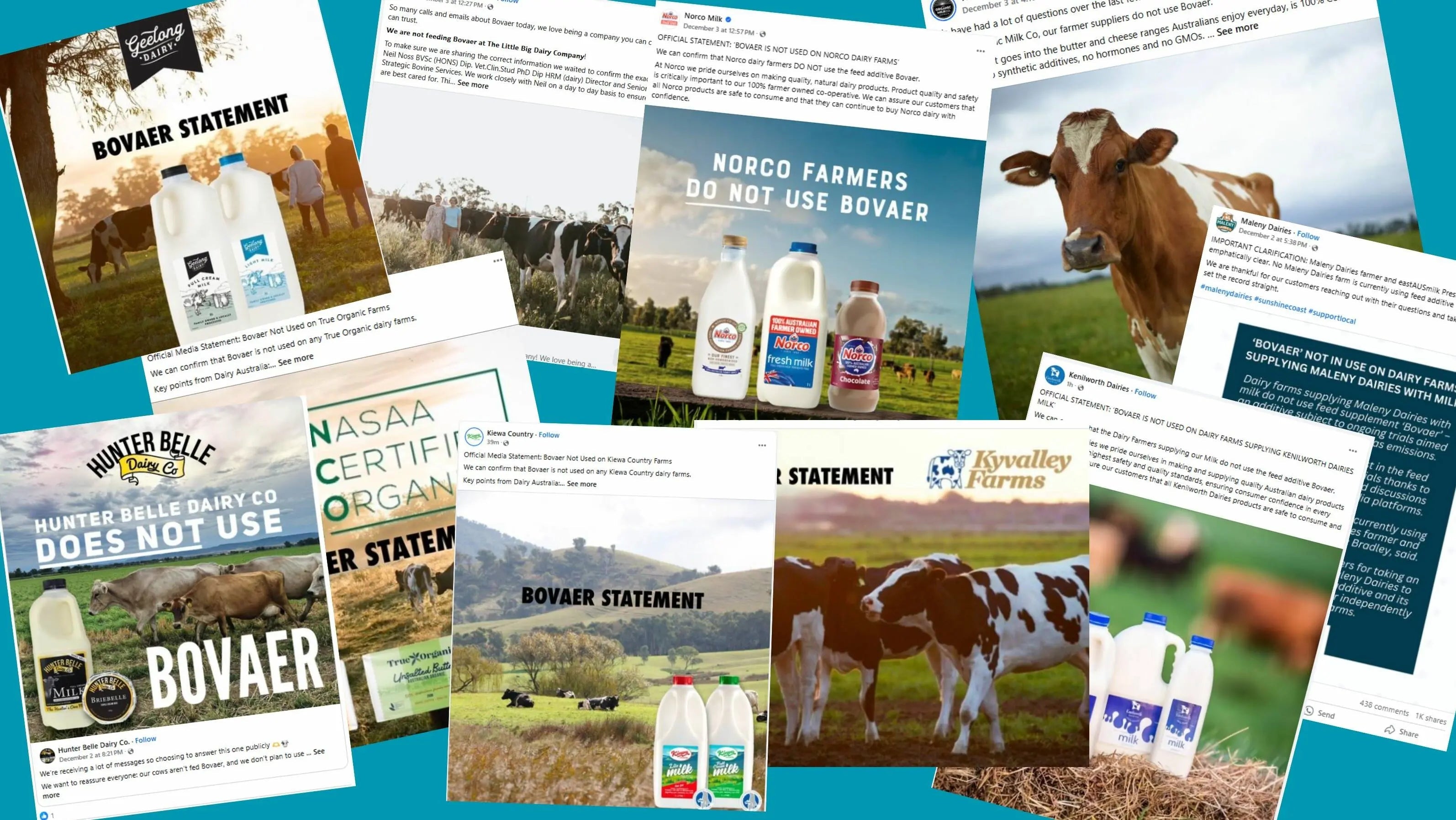Please note: We source our beef and collagen from farmers who graze their animals on pasture their entire lives and do not use feed. Therefore, they do not use Bovaer by default. We believe nature knows best and natural foods with minimal human intervention are the best for the environment, animals and human health.
You may have heard the announcement recently that some companies are using a cattle feed additive called Bovaer in their dairy and beef products in order to help reduce methane emissions. There have been over 60 countries, including here in Australia, who have approved this additive for commercial use.
Even though the company who manufacture Bovaer claim that it is safe for animals, consumers and farmers, many people have taken to social media and say that they're going to boycott companies stocking products using this additive. Many farmers and farmer owned companies like Norco have also taken this opportunity to plainly state, they will never use an additive like Bovaer in their products.
On one side of the argument, they're saying that the supplement is broken down in the cow's natural digestive processes and fully meaning it won't be present in the beef or dairy products.
But on the other side, people are saying there hasn't been enough long term testing to know the outcome for the animals or for those who consume them.
Despite the manufacturer's safety claims, people are also asking questions about the discretion letter from the FDA stating that caution should be exercised when handling Bovaer as it may damage male fertility and reproductive organs and that it is potentially harmful when inhaled and causes irritation of the skin and eyes if contact is made. Therefore, protective gear must be worn.

Here's a rundown of what we know about Bovaer.
What is Bovaer?
Bovaer, developed by DSM, is a feed additive designed to reduce methane emissions from cattle. Bovaer’s active ingredient, 3-nitrooxypropanol (3-NOP), inhibits a key enzyme in the methane production process within a cow’s stomach. Other ingredients include silicon dioxide and propylene glycol.
When included in a cow’s diet, it can reportedly reduce methane emissions by up to 30% to 90%, depending on the dosage and diet composition. This additive has been hailed as a potential game-changer in reducing the carbon footprint of animal agriculture.
There’s some confusion about whether Bovaer is a drug or “food addictive”. The FDA classifies Bovaer as a drug because it alters an animal’s bodily functions. However, the FDA’s Center for Veterinary Medicine opted not to treat it as a drug and avoid enforcing standard drug regulations, citing low risk to humans and animals—a move that naturally sidesteps normal safety monitoring.
The Pros of Bovaer
1. Significant Methane Reduction
Bovaer has demonstrated effectiveness in reducing methane emissions, making it a viable solution for reducing the emissions of cattle.
2. Easy Integration into Existing Farming Practices
Farmers can mix the additive into existing feed systems without overhauling operations. This convenience lowers the barrier to adoption, making it easier for the livestock industry.
3. Financial Incentives
As governments and industries strive to meet ambitious climate goals, farmers who adopt Bovaer may benefit from carbon credits or other financial incentives.
The Cons of Bovaer
There are legitimate concerns surrounding the use of Bovaer. These primarily stem from the unknowns associated with long-term impacts and potential risks. But perhaps most importantly, its not a problem that really needs to be solved.
1. Lack of Long-Term Research
Bovaer is a relatively new product, and much of the research has been conducted over short time frames. While studies have shown that the additive effectively reduces methane emissions without negatively impacting animal health or productivity in the short term, there is little data on its long-term effects. Questions remain about the cumulative impact of inhibiting methane production in cows' digestive systems and whether this could lead to unforeseen health or productivity issues.
Additionally, safety studies have shown mixed results. In one trial, cows fed the highest doses of 3-NOP experienced reduced feed intake and lower heart weights. Another study reported smaller ovaries and decreased enzyme activity in cows on high doses.
A 2021 carcinogenicity study found tumours in female rats exposed to high doses of 3-NOP. It also found there was a “slight to severe decrease” in male rats’ sperm cell production. The same study found deposits of 3-NOP in the liver, adrenal glands, kidney, fat, muscles and brain of the tested rats.
In short, where doses were considered high, there were all sorts of adverse events.
The manufacturer says the drug has been under development and testing for over 15 years but that doesn’t involve human consumption. In other words, there has been no testing on the long term effects of humans drinking Bovaer milk or consuming Bovaer beef.
2. Impact on Gut Microbiome
Methane production is part of the natural digestive process in ruminants. Bovaer works by inhibiting the enzyme methyl-coenzyme M reductase, essential for methane formation. This interference raises concerns about potential disruptions to the gut microbiome, which plays a critical role in digestion and overall health. Although current studies suggest no immediate harm, the long-term effects of altering this natural process are largely unknown.
3. Potential Environmental Trade-Offs
While Bovaer reduces methane emissions, the environmental trade-offs of its production and widespread use are not fully understood. For example, could it have unintended consequences, such as increasing other greenhouse gases like ammonia or nitrous oxide during decomposition? These are critical questions that need to be answered through comprehensive lifecycle assessments.
4. Potential Over-Reliance on Technological Solutions
Bovaer represents a technological fix to the methane problem, but it does not address the broader environmental challenges of livestock farming. Over-reliance on feed additives like Bovaer could divert attention from the need for holistic approaches to sustainable farming.
5. Methane From Cattle Isn't a Problem That Needs Solving
Cattle belch methane, but it's critical to understand this is part of a natural BIOGENIC carbon cycle.
The methane enters the atmosphere and after 10 years, it's broken down into CO2 & H2O. The water becomes part of the water cycle (like rain) and the CO2 is taken up by plants. During photosynthesis, the O2 is released back into the air and we humans can live because we breathe this.
Then the C (carbon) is taken up by the roots, and parts of it are dripped down to microorganisms and fungi in the soil, which live on the carbon and in exchange, send the plant's roots the other nutrients it needs to live. Up to about 40% can be SEQUESTERED in the soil, when the cattle are managed well (e.g. using Regenerative Farming methods). Then, the cow eats grass (carbon) and the cycle happens again. Some of this carbon is pooped out; some of it becomes meat, leather, bones, etc.

This is VERY different than pumping up ancient carbon and methane from deep in the earth's core, introducing it to the atmosphere. That is not a cycle, it's a one way road.
Read more about Regenerative Farming
Our Conclusions About Bovaer
Bovaer may work to significantly reduce methane emissions from cattle, however, the lack of long-term research around animal and human health is worthy of a healthy dose of scepticism, despite the usual dismissive labelling of uncomfortable questions as "misinformation" or "conspiracy theory". And, most importantly, it is yet another technology based money making solution that tries to outsmart nature. Remember Glyphosate?
We strongly encourage governments and corporations to support natural solutions to improving the sustainability and lessening the negative environmental impacts of all forms of agriculture - plant and animal - solutions such as Regenerative Agriculture. History shows us that working with nature is always the safest way to ensure there are no unintended negative consequences for the environment, animals and human health and we should always be working from the Precautionary Principle.
We created Chief Nutrition to make products that follow this philosophy. Whether it's our collagen protein powder, collagen protein bars, beef bars, biltong or organ meat supplements, we source the best quality ingredients and avoid ultra processed ingredients because that's what we want for ourselves, our families and of course our customers. It's all part of our mission to help the world stop eating junk.

